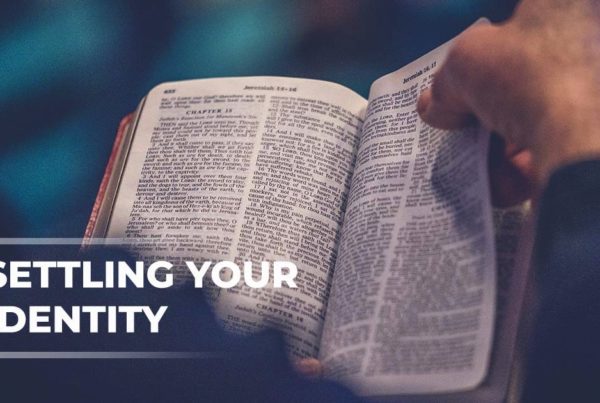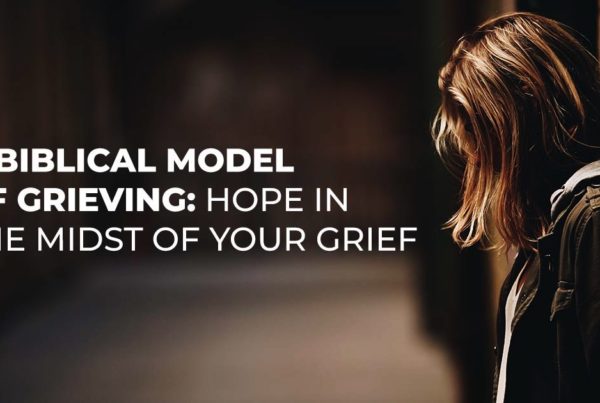This is the second article in The Gathering 2017 Summer Devotional Series. The entire series can be viewed here.
I cried out to God for help; I cried out to God to hear me. When I was in distress, I sought the Lord; at night I stretched out untiring hands, and I would not be comforted. I remembered you, God, and I groaned; I meditated, and my spirit grew faint, you kept my eyes from closing; I was too troubled to speak. I thought about the former days, the years of my past; I remembered my songs in the night. My heart meditated and my spirit asked you:
“Will you reject me forever? Will you never show your favor again? Has your unfailing love vanished forever? Has your promise failed for all time? Have you forgotten to be merciful? Have you, in anger, withheld your compassion?”
Then I thought, “I will make myself remember the years when you stretched out your hand. I will remember what you’ve done, I will remember how you’ve helped me. I will remember all your works and meditate on all your mighty ways.”
Because your ways, God, are holy. What god is as great as our God? (Psalm 77:1-13, NIV, author’s paraphrase)
There are lines of demarcation in every life—before and after something happened—that mark and divide our years, making a life feel split in two.
There are days that make us groan to the point of forgetting there was ever such a thing as grace. When we’re too troubled to eat or speak or sleep, and crying out to God feels like you’re crying out to a brick wall.
I get it.
It was in the month of May that I lost both of my parents, just in different years. And it was in the months after my mom died, that I could’ve had my own funeral from drowning in the words that consumed my mind. They were murderous. Depression so deep that a blade to my arm felt better than being awake.
Trauma can mask Christ. Trouble and grief can make it seem like, if God could change, then he did, when in reality it was our pain that changed what we first thought about God. A heart hemorrhaging to the point of death, wishing rather to not feel anything at all, than to be feeling this. Our pain speaks to us words that kill us. It tells us things that aren’t true.
If “the mouth speaks from that which fills our hearts” (Matthew 15:18), then what I was saying was a direct reflection of how my heart was doing, and it wasn’t doing well. The heart of the matter is always, always, always, a matter of the heart. I was awakened to the reality of how our words do hold the power of life and of death (Proverbs 18:21). Our words will either make us live or die, and how are we ever going to live if we don’t speak what’s true?
“I will make myself remember you. I will remember how you’ve helped me. . .”
There’s a sword in the truth, because the Word of God is the Sword of Truth (Ephesians 6:17), and there is power that can overcome the death of a heart by using it…even if we can’t feel it yet. Even if our pain has blurred our vision so we can’t see enough to even believe or understand what is true, we have to speak what is true so that we live.
The blade of the Sword often hurts the bruised heart. But God cannot be unfaithful. What seems as though it is killing you, is actually cutting away at you. It’s his sharp and holy words that make in incision into a life. Blade words that cut the tissue back to where soul and spirit join, laying bare the intentions of our hearts. (Hebrews 4:12)
“What is real? Real living, real believing, real faith? Real living doesn’t always feel like living; it can feel like you’re dying. It can feel like you’re breaking apart and losing pieces of yourself —and you are. You must let your false self be broken, parts of you that you only thought were necessary. You must embrace your union with Christ, bravely surrender and trust that what’s breaking and being lost is never the eternal, needed parts of you, but always the temporal, needless parts of you, that were getting in the way of you becoming real.” —Ann Voskamp
The thing about these lines of demarcation is, we are never the same as we were before whatever it was that broke us…but that isn’t always a bad thing.
God did this to Jacob in Genesis 32. Jacob had an encounter with God and wrestled with him the entire night. God broke Jacobs leg, and even after this Jacob cried out to Him, “I will not go unless you bless me!” God asked Jacob what his name was and Jacob told him.
Then God did this thing that he does to any of us that finally see him—he renamed him. It was after Jacob was renamed that God blessed him. And it was after this encounter that Jacob named that wrestling ground, “Penial”, because it means, “face of God.”
Sometimes it takes us being broken before we get to the place of seeing. God had to break Jacob’s thigh to open his eyes. But, oh, that place of seeing! That place of seeing him is what moves our eyes from what is seen to what is unseen. It changes our perspective, even though our circumstances haven’t changed at all. When we see him, we are never left the same; we are renamed and no longer who we once were (2 Corinthians 5:17). When we see him, our hearts are changed; and when a heart is changed, everything changes.
“I will give you a new heart and put a new spirit in you; I will remove from you your heart of stone and give you a heart of flesh. I will put my Spirit in you and move you.” (Ezekiel 36:26, NIV)
It is good to know that Jacob continued to limp after this encounter, because we do, too, right? We limp and forget to remember that we’ve been helped. But maybe this limping doesn’t have to be a way to keep falling, but rather a reminder to keep looking, to keep seeing.
“Though outwardly we are wasting away, yet inwardly we are being renewed day by day.” (2 Corinthians 4:16, NIV)



